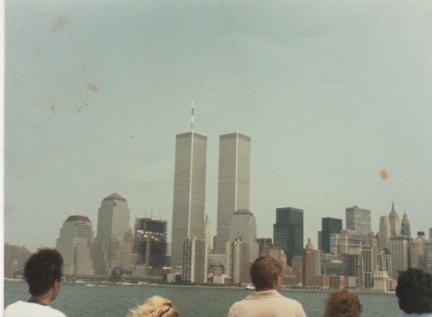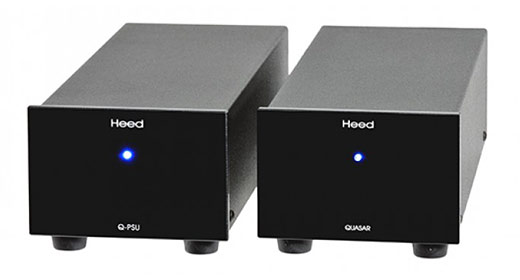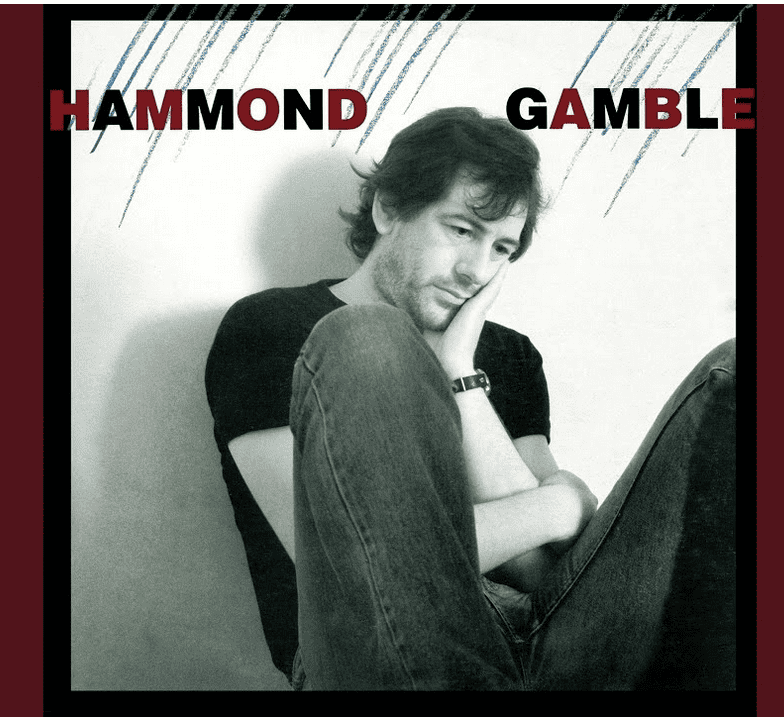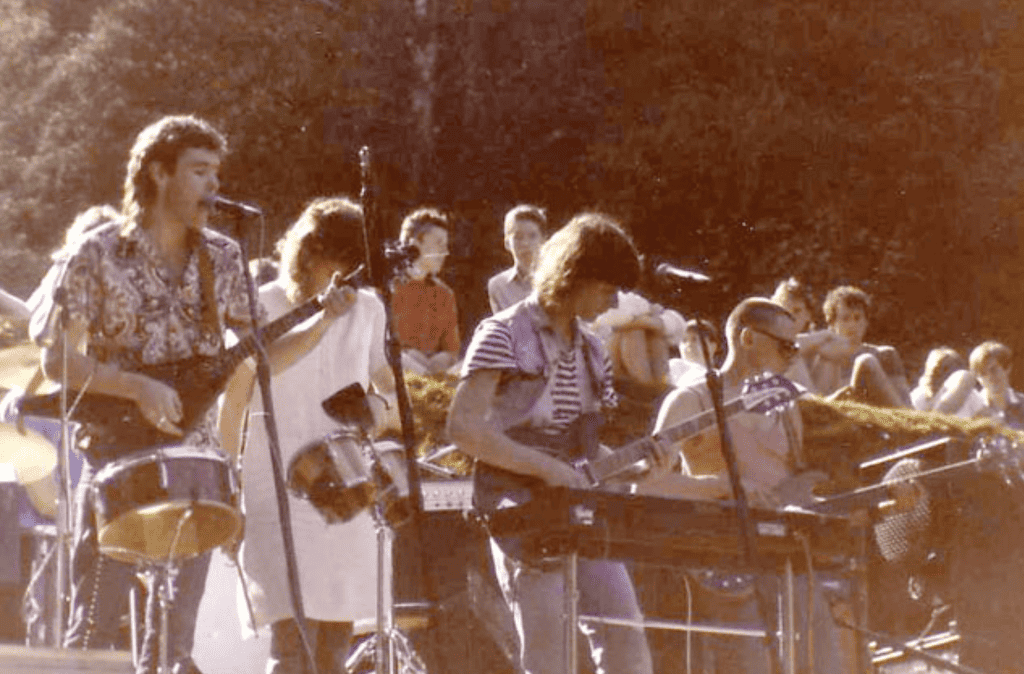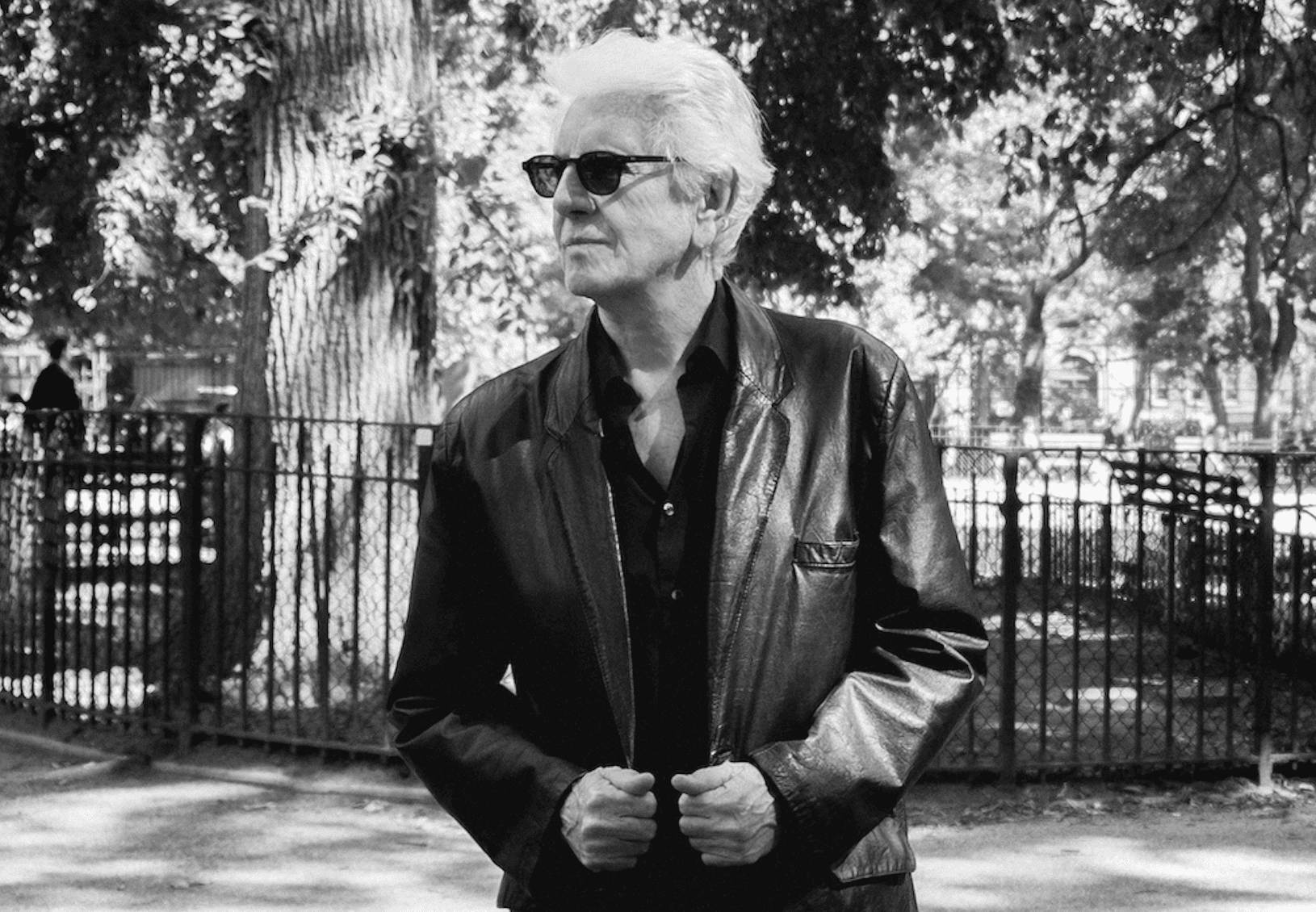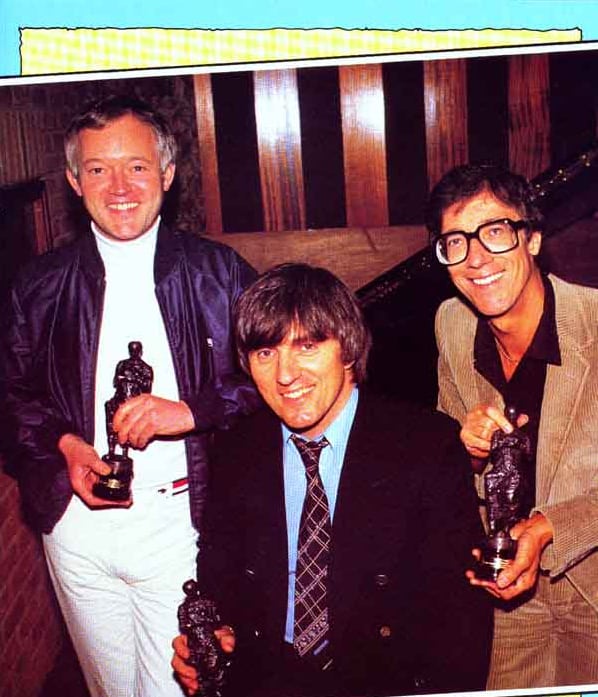Everyone has a first time. In New York, that is. I wrote this wide-eyed diary for the now-defunct Wellington newspaper, The Evening Post, in May 1988. In the first of a three-part story, I meet one of my heroes, guitarist Fred Frith, and fail to mention the main reason I was in the city: to cover Michael Jackson’s Bad album launch at Madison Square Garden. [Part 2 is here, and Part 3 is here].
BY GARY STEEL
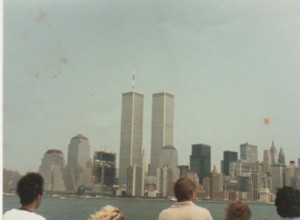 SPRING IS POISED but not quite ready to descend on a wintry New York cityscape of icy blue-grey buildings and dull-brown frost-bitten parks.
SPRING IS POISED but not quite ready to descend on a wintry New York cityscape of icy blue-grey buildings and dull-brown frost-bitten parks.
In downtown Manhattan, street vendors do a roaring trade in $3 umbrellas that wouldn’t survive five minutes in Wellington’s great gusts. They stand there, demonstrating their shoddy wares in wet streams kept vertical by monstrous glass towers, watching horizontal surges of scurrying, always hurrying, potential customers.
One such purchaser of said apparatus plips the button and up goes the canopy… but it’s too late for him. Sodden from head to toe for the second time in two days, this is his second day in the Big Apple.
That night, locked safely away from this terrifying, alien environment, he sinks into the comfort of a hotel bed for a night of all-American television.
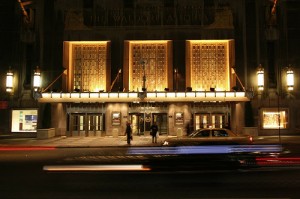 Parading past his awestruck eyes are a succession of images that reflect the extremes of an extreme society. Cranky televangelists DEMAND more money and tear their adversaries to shreds just like real politicians. Bible re-enactments with 1980s settings put Jean Luc Godard’s controversial Virgin Mary in the shade, all the while flashing telephone pledging numbers on-screen.
Parading past his awestruck eyes are a succession of images that reflect the extremes of an extreme society. Cranky televangelists DEMAND more money and tear their adversaries to shreds just like real politicians. Bible re-enactments with 1980s settings put Jean Luc Godard’s controversial Virgin Mary in the shade, all the while flashing telephone pledging numbers on-screen.
Live-to-air mail order channels sell a succession of tasteless and useless items to couch potatoes who ring up and actually get to hear themselves clucking away, ordering product, on teevee. Numerous channels consist of pulp commercials, pulp programmes for pulp regressives. Public access channels feature a bewildering array of ethnic, political and cultural minorities.
Then there’s cable. Cinema channels featuring everything from beautifully restored Buster Keaton silent classics to 1960s Fellini art house masterpieces. A range of all-news channels. And Music Television (MTV) with a non-stop diet of Top 40 white rock and pop, and anything “alternative” (ie, non Top 40) consigned to occasional placements at 3 or 4am. Believe it or not, you can see more and better rock and pop videos on New Zealand television.
Inevitably, the cathode overload lulled the traveller asleep in the bowels of the splendid Waldorf Astoria, a building famed for its musty art deco elegance. He was blissfully unaware that, weeks before, a young woman was slashed to pieces in an emergency stairwell in the very same building.
The following morning, having sampled the overwhelming expanse of Madison Avenue and the pretentiousness of Bloomingdales, he flags down his first big yellow taxi and heads for Greenwich “Village.”
He witnesses a car exploding into flames and a battle in a record shop when a young man is apprehended for shoplifting. In a small boutique, the sales woman is distraught; a bunch of youths have just snatched and grabbed some clothing. Would Northern Ireland have been a safer place to travel?
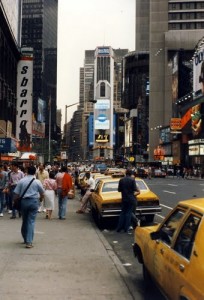 The Knitting Factory is the hippest performance space in a healthy circuit of venues for avant-garde and out-of-sight music artists. With room for 100 appreciative disciples of the different, it’s an ideally intimate environment for the unique guitar improvisations of Fred Frith, an instrumentalist intent on challenging and changing all preconceived notions of what playing the guitar is all about.
The Knitting Factory is the hippest performance space in a healthy circuit of venues for avant-garde and out-of-sight music artists. With room for 100 appreciative disciples of the different, it’s an ideally intimate environment for the unique guitar improvisations of Fred Frith, an instrumentalist intent on challenging and changing all preconceived notions of what playing the guitar is all about.
Frith is a man of consistent, singular vision but also great eclecticism. His work straddles both the less conventional end of the rock spectrum and the world of spontaneous improvisation. But in both fields he is always innovative and surprisingly accessible.
“We’re a limbo music which doesn’t quite fit into the category of jazz or modern music… it’s somewhere on the fringes of all categories,” says Frith the following day when the New Zealander in New York meets him at his quaint, decaying East Village apartment.
“I’m involved in both worlds… in very extreme precomposition and spontaneous composition. I find that the two different worlds can help each other, but some people disapprove of being in both camps. A lot of improvisers think of improvising being politically correct because it’s more democratic, and composing as being politically incorrect because it means imposing your will on other people, and therefore autocratic.”
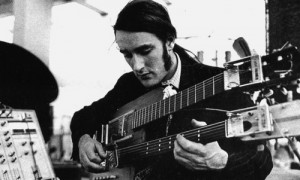 Frith’s original grouping, formed in Cambridge, England in 1968, was an obscure but influential arty collective, which went by the name Henry Cow. They embraced Frank Zappa’s credo, “No commercial potential!”, never raising ticket prices over 50 pence, and unearthed a galaxy of new sounds by seriously ransacking everything from rock to jazz to modern classical. Wrote Henry Cow: “It is as possible to be pertinent, critical, and constructive in this as in any other field – but it is not yet as usual. Our aim is to make it so.”
Frith’s original grouping, formed in Cambridge, England in 1968, was an obscure but influential arty collective, which went by the name Henry Cow. They embraced Frank Zappa’s credo, “No commercial potential!”, never raising ticket prices over 50 pence, and unearthed a galaxy of new sounds by seriously ransacking everything from rock to jazz to modern classical. Wrote Henry Cow: “It is as possible to be pertinent, critical, and constructive in this as in any other field – but it is not yet as usual. Our aim is to make it so.”
Frith is now a little embarrassed at the political naivety, but the music still speaks for itself.
“The women in the band were consumed with the women’s movement, and there was a lot of consciousness-raising going on. The arguments never resolved anything… we were constantly discussing and arguing about everything. But we were very much agreed in our attitude to the music business. The politics beyond the music business was extremely unclear!”
Outside the group context, in 1974 Frith cut an album called Guitar Solos, which is still recognised as a major contribution to the history of electric guitar, and when the English gentleman moved to New York in 1979 he continued the innovative explorations of his main instrument; developing a two-hand “guitar on the table” technique that raised new sound possibilities.
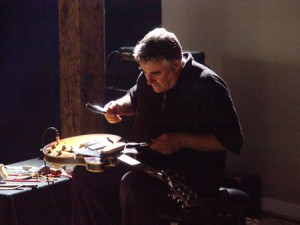 “I embarked on a process which led me inexorably down a particular lane, which in this instance was to lay the guitars flat, attach things to them and play them like a table,” says Frith, sipping a nice cuppa tea.
“I embarked on a process which led me inexorably down a particular lane, which in this instance was to lay the guitars flat, attach things to them and play them like a table,” says Frith, sipping a nice cuppa tea.
As the guitar itself became less and less relevant, Frith began building his own electric stringed instruments. His first was created out of a bookshelf. They were cheap, disposable and destructible. Although he has since returned to the humble electric guitar (with modifications) you can still find Frith pelting his instruments with rice and ballbearings, or beating them with chopsticks and screwdrivers.
Although Fred Frith isn’t a recognisable name, the man’s influence has spread far and wide and his more conventional playing abilities can be sampled on records as diverse as those by Robert Wyatt, The Residents, Brian Eno, Bill Laswell and Fred Maher, Laurie Anderson and The Violent Femmes. He has recent team-ups with guitarist Richard Thompson and upcoming team-ups with jazz trumpeter Don Cherry and ex-This Heat personage Charles Hayward, to his credit.
Like one of his original heroes, Frank Zappa, Frith runs a cottage industry of his own: he produces young bands, and runs his own record label, Rift.
He admires Zappa, who “is a strange exception to almost every rule,” but doesn’t rate any of his output since 1972. Frith, like his well-known rock critic brother Simon, obviously maintains an interest in the media, expresses dismay at the way magazines “with very few exceptions, tend to trivialize everything… writers can write well about the social context in which music is performed, they can write well about lyrics, they can write well about everything around the music, but not many writers can write well about music.”
He admires the work of late rock journalist Lester Bangs, who “was good at using language in a way which paralleled the energy of the things he was writing about.”
A problem, says Frith, is “that a lot of writing is by people who have fundamentally academic background who are trying to escape from it, so they constantly patronise the people they’re writing for.
Frith takes the New Zealand fan for a guided tour of the East Village, spotting the remains of the legendary venue the Fillmore East, and finding bizarre little hideaways selling (in one instance) nothing but alternative music books and magazines and (in another instance) a radical political bookshop the likes of which could only exist in a country that, for all its pitfalls, at least allows radical literature to prolifierate.
NOTE: Reading this again after all these years, apart from cringing at my own deficiencies as a writer, I couldn’t help thinking how my descriptions of American culture reflected on a New Zealand that hadn’t yet been fully absorbed by the dominant power. Back in 1988, we didn’t have MTV or 24-hour music television or infomercial channels or televangelist transmissions, so it seemed worthwhile writing about them. These days, I would never carelessly sling a Fred Frith interview into a story about a visit to New York, but there you go…

